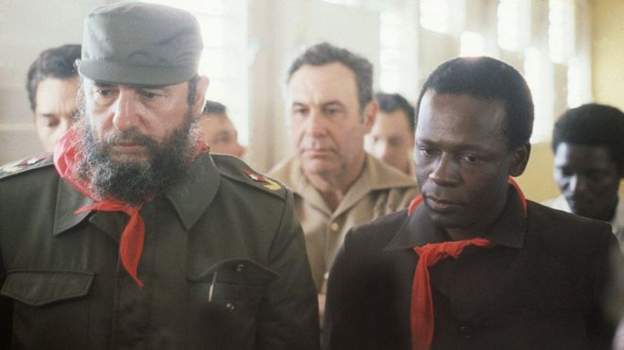Nov. 28, 2016 (GIN) – U.N. Secretary General Ban Ki-Moon extended sympathies to the Cuban people on the passing on Friday, Nov. 25, of their longtime president, Fidel Alejandro Castro Ruz, who he called ‘a strong voice for social justice.’
Admired by leftists and people of the developing world as a revolutionary champion of the poor, the former president died at the age of 90. On Monday, tens of thousands of Cubans, some wrapped in red, white and blue Cuban flags, lined the streets from Havana to Santiago de Cuba as a funeral cortege made its way across the country, carrying the ashes of the renowned leader.
Speaking to reporters at a conference in Turkmenistan, Ban Ki-Moon praised Fidel Castro’s advances in the fields of education, literacy and health.
“As Prime Minister, President, Commander of the Cuban Armed Forces and First Secretary of the Cuban Communist Party, his role at the helm of Cuba spanned nearly 50 years, during which he left a major imprint on his country and on global politics,” said the U.N. chief.
“His revolutionary ideals left few indifferent. He was a strong voice for social justice in global discussions at the UN General Assembly and international and regional forums.” “I offer the support of the United Nations to work alongside the people of the island,” he said, adding his hope that Cuba “would continue to advance on a path of reform and greater prosperity.”
Fidel Castro served as Cuba’s President from 1976 to 2008.
The U.N.’s General Assembly president, Peter Thomson, called Mr. Castro “one of the iconic leaders of the 20th century… an inspirational figure for developing countries in particular,” adding that “his dedication to their advancement, especially in the fields of education and health, would be long remembered.”
Bill Fletcher, founder of the Black Radical Congress and a columnist for BlackCommentator.com, recalled Fidel’s storied role in Africa’s anticolonial movements. After Cuba’s first venture in Algeria that ended French domination there in 1962, Cuba under Fidel “went on to support the various anticolonial movements in Africa,” said Fletcher.
“These included, in particular, the anti-Portuguese movements in Guinea-Bissau, Angola and Mozambique. And (the Cubans) were unquestioning in their support for the anti-apartheid struggle in South Africa.”
In the film “Fidel: The Untold Story” directed by Estela Bravo, the documentary highlights strong ties forged between Fidel and such national liberation leaders as such as Sékou Touré, Amílcar Cabral, Julius Nyerere, Samora Machel and Agostinho Neto.
South African President Jacob Zuma is reportedly on route to Cuba for Fidel’s funeral.
It was the “unwavering commitment of Fidel Castro to Namibia’s freedom that led to the destruction of apartheid in the country,” said Namibian leader Hage Geingob. The late Castro had no interest in the natural resources of a free Namibia,” recalled President Geingob, nor did Cubans come to collect gold and diamonds. Instead, Castro offered an education to more than 3,000 Namibian children; many of whom today occupy influential positions in all sectors of the economy.”
w/pix of Presidents F. Castro of Cuba and J. do Santos of Angola






